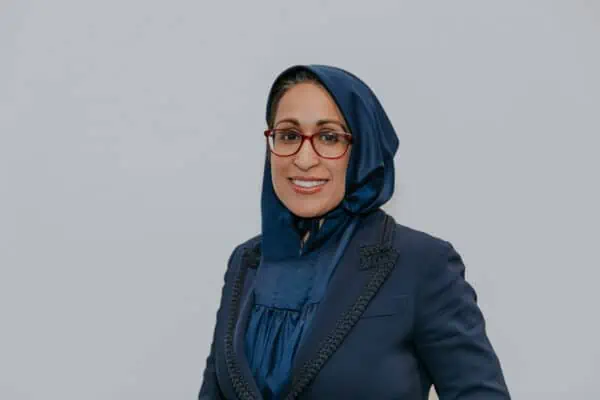
Tasneem Dohadwala, Founding Partner of VC Excelstar Ventures, has shared her thoughts on the demise of several banks and the federal government’s decision to guarantee all deposits. Some observers have criticized the “government bailout” while others have noted that if the Feds had not taken determined action, bank runs would have quickly spread, undermining the entire financial system.
A graduate of both Wellesley and Harvard Business School, Dohadwala previously worked in financial services on the sell side at Lehman Brothers and at Matrix Partners. Her venture firm’s notable investments include Augmenix (acquired by Boston Scientific), nVision (acquired. by Boston Scientific), Conformal Medical, Diesel Labs, Instylla, Altiostar Networks and more.
CI asked Dohadwala if the Feds did the right thing in backstopping all deposits at Silicon Valley Bank and First Republic. She said, yes, the government took the correct action as companies who had deposits at the bank have worked hard to raise their money, and bad bank operations is not their fault. Bank mismanagement is something the government needs to regulate.
Asked what may have occurred if the government had not acted last Sunday, Dohadwala said the situation could have become rather dire.
“By limiting access to cash, these companies would have been crippled without being able to make payroll and with vendors stopping service because of concerns of these companies being able to pay. These companies do not have enough cushion to withstand such a shock, and the result would have been catastrophic as significant innovation would not have been able to get to market because of bad bank management,” Dohadwala explained.
As has been previously reported, the issue with SVB and other banks is that long-duration assets have tanked in price as interest rates have moved dramatically higher. So why didn’t bank executives adjust to the changing environment?
“There are several respected sentiments out there saying that our economy has just been slowed down by the rising cost of capital rather than a recession, which I believe. However, I [also] believe that SVB, due to its inherent nature as a bank, has been caught off guard by rising interest rates. Perhaps they saw the economy dampening but didn’t respond aggressively, even though they likely should have realized that they would feel the impact in a much more severe way. They likely didn’t adjust due to hubris – they have been experiencing extraordinary profits (SVB Financial Group net income for the twelve months ending December 31, 2022 was $1.509B per Macrotrends), and they felt untouchable and so didn’t feel like they didn’t respond aggressively to changing times.”
And what about bank regulators who should have known about the shortcomings for many months? Dohadwala said either they were asleep at the wheel or over-confident.
“Companies are struggling to raise money. More calling of working capital lines. General higher cost of capital. More down rounds or bridges. Lower valuations. There were plenty of signs ahead of this situation,” said Dohadwala.
So do bank regulations need to change to halt future bank runs in the future?
“I do believe that banks like SVB that take proportionally more risk than other banks need more regulation. The consequences of not securing depositors and guaranteeing cash could have led to catastrophic effects on our economy as well as future innovation. Investing in such nascent companies is investing in future innovation, and that is what, in the end, allows the US to remain in an economically dominant position. Without such innovation, our country’s innovation and the resulting economic gains would be flat and eventually stale.”
As the Federal Reserve will be meeting soon to decide whether or not to raise rates again, Dohadwala said they may delay an increase in rates, but she believes future rate hikes are imminent. She said the recent events have been a “warning shot” for other overexposed banks to”course correct.”
So are we out of the woods? Or will there be more volatility and challenges in the future?
“No. Other banks need to realign their exposure to the changed environment, and they need to prepare for future rate hikes. I think the startup community will still face the existing issues of lower valuations and generally softening of the economy.”

